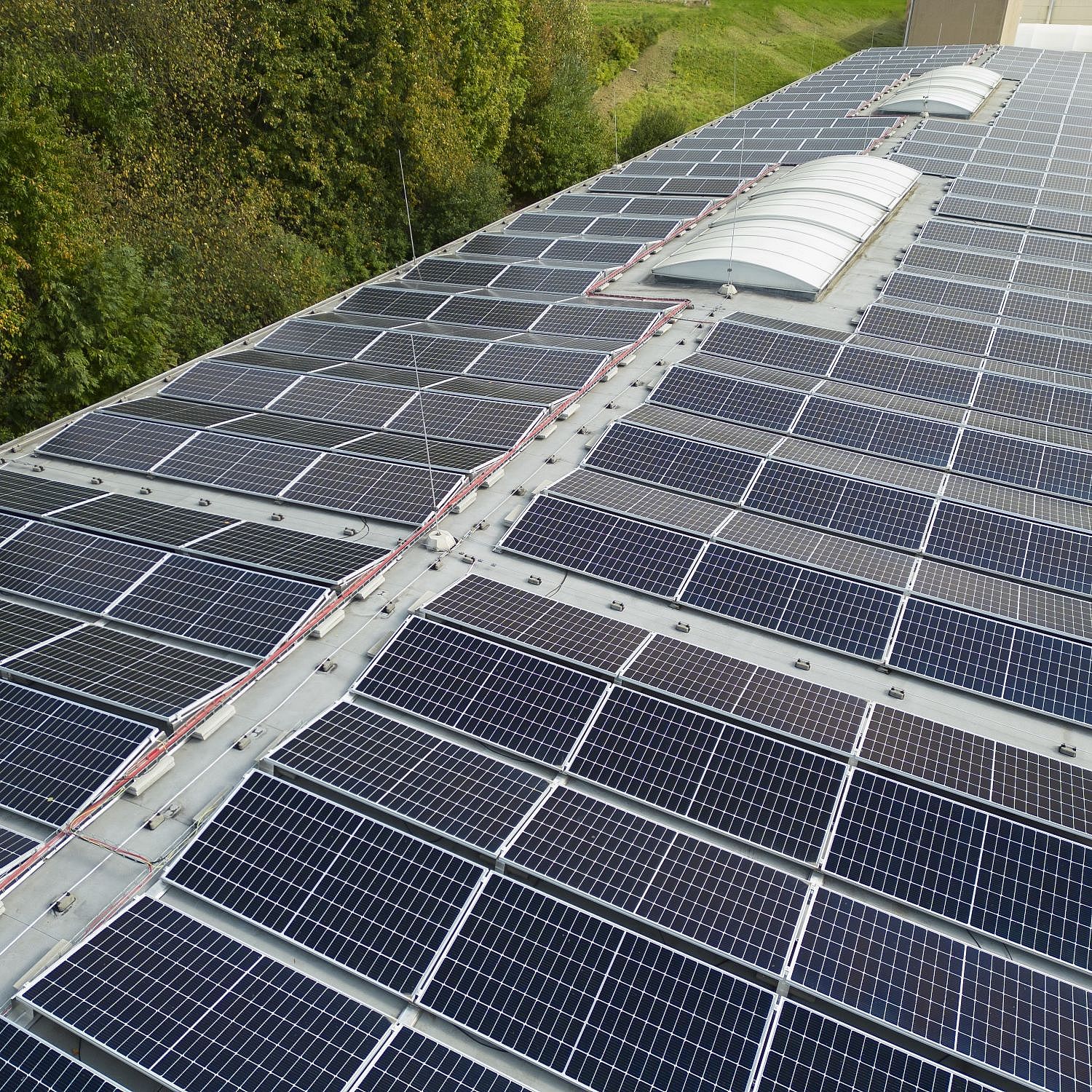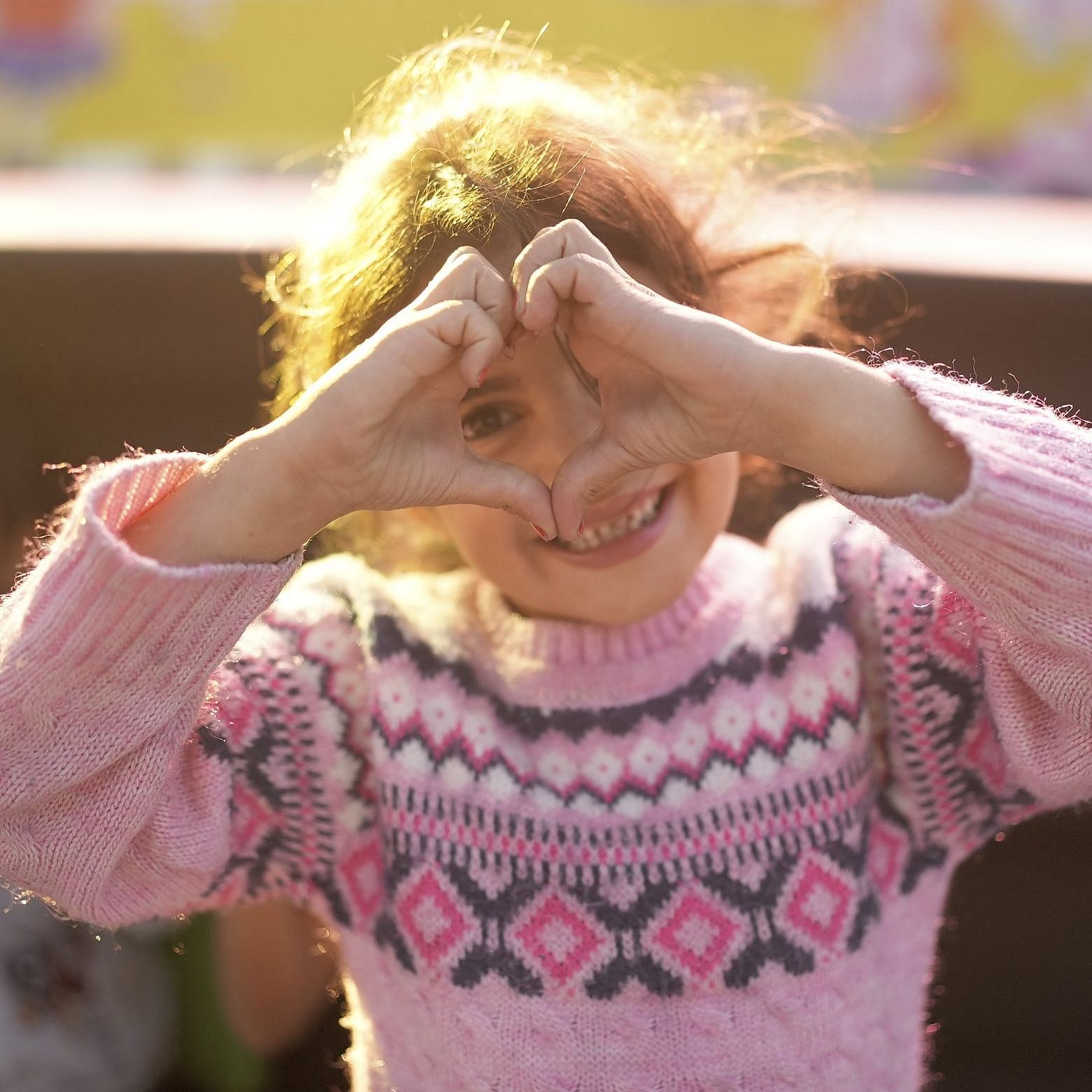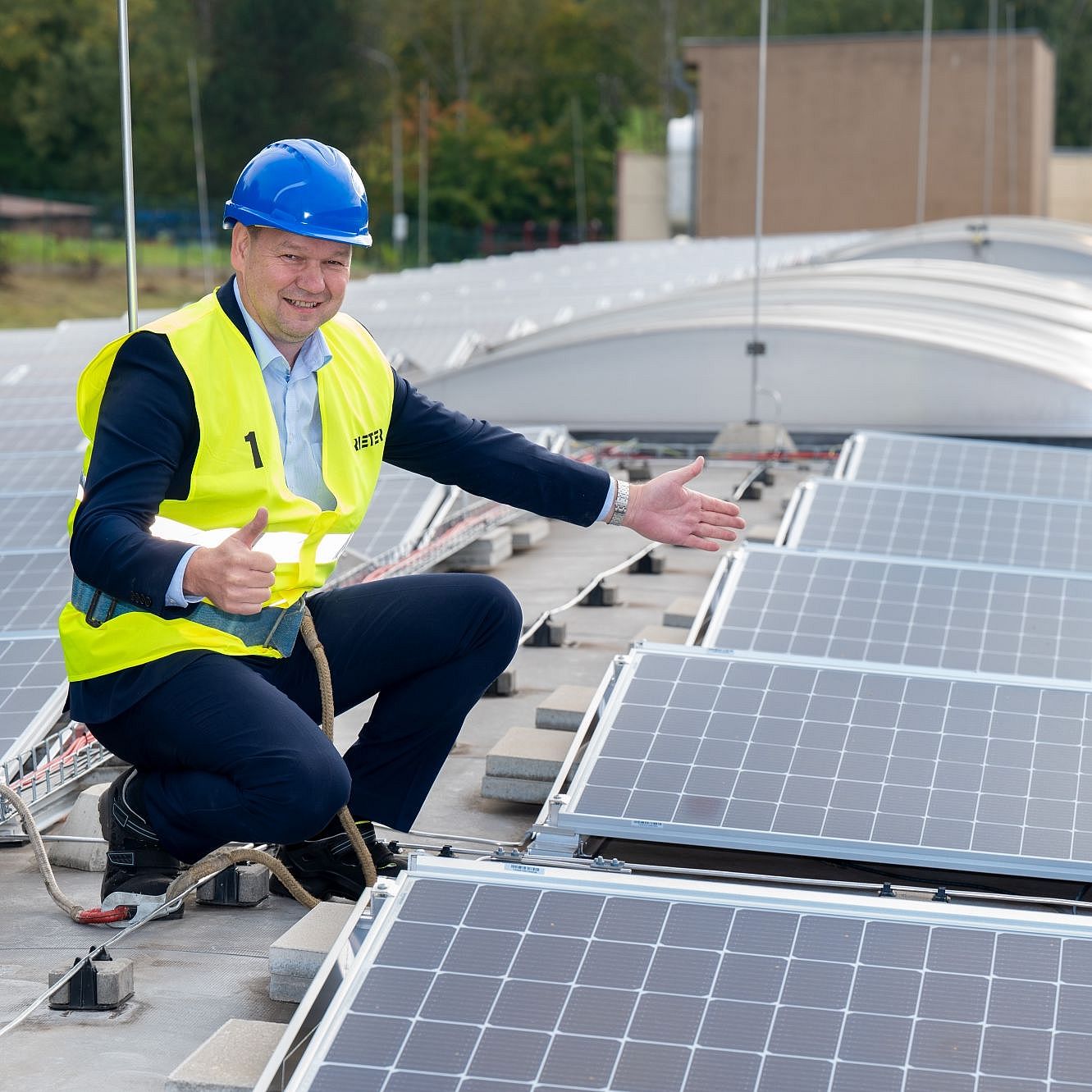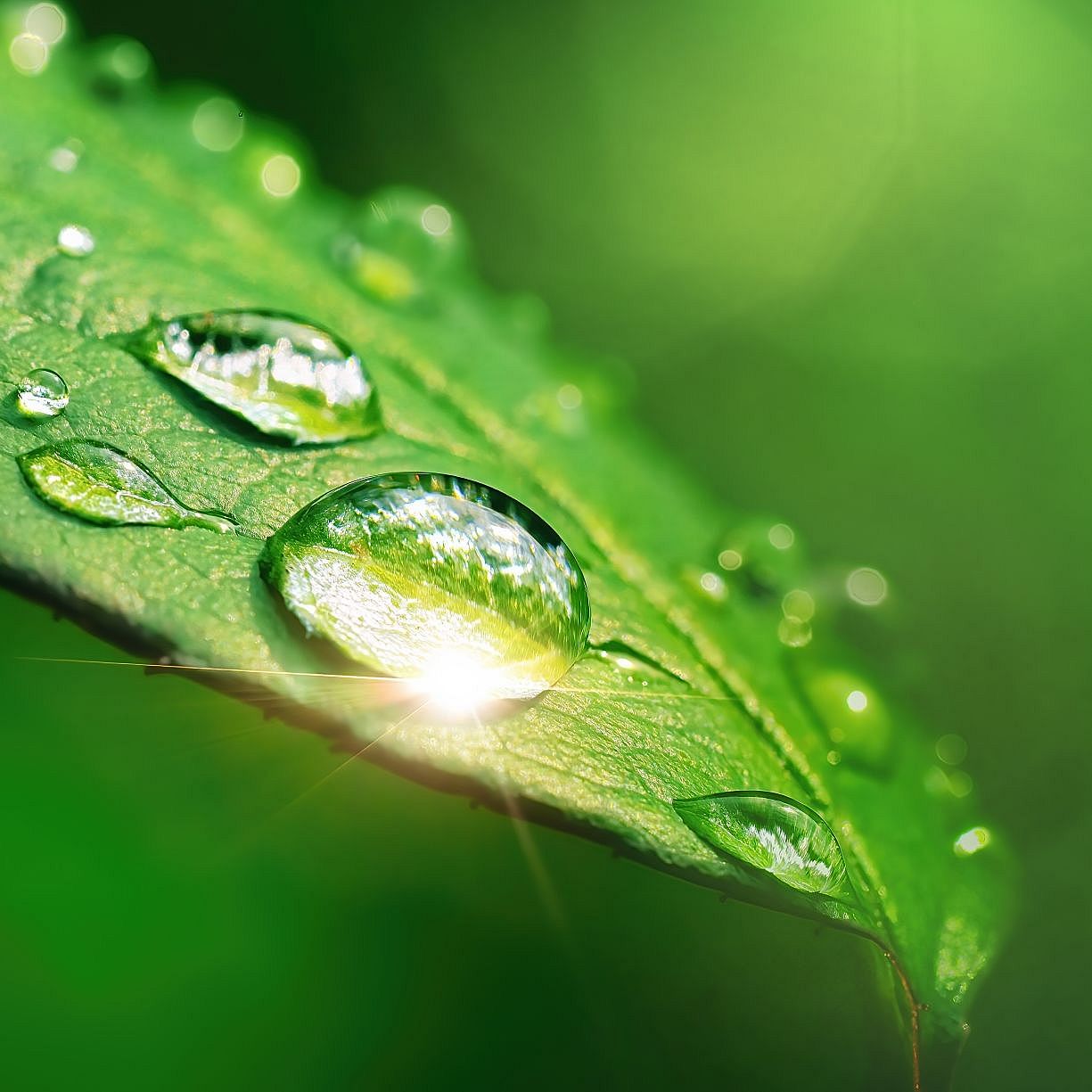Environmental Goals
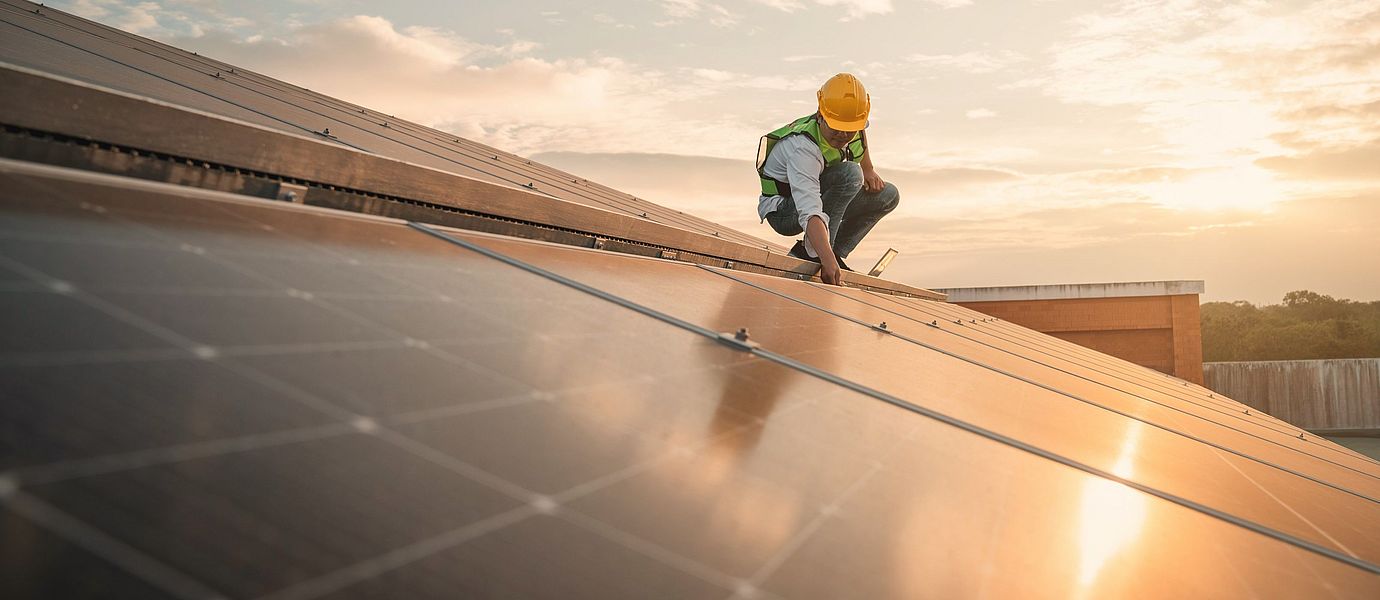
Rieter is well on the way to achieving its environmental goals for 2025. The company has already significantly exceeded four of the five goals. This success is based on a long-term strategy of expanding renewable energy supplies and continuously reducing energy consumption.
The company remains committed to its plan to switch fully to renewable energy sources for heating and cooling by 2030.
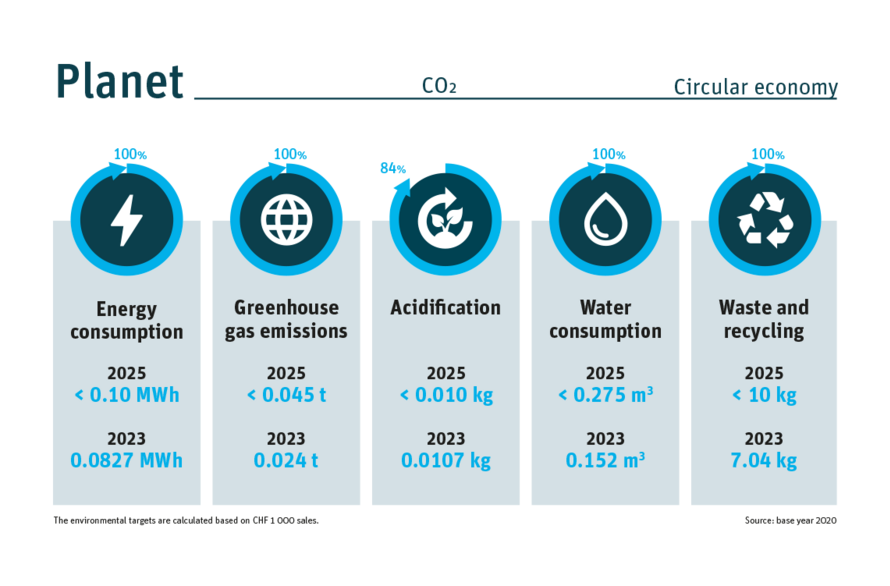
Energy consumption
In 2023, Rieter reduced its energy consumption to 0.0827 MWh per CHF 1 000 of sales. This means that, for the second year in succession, energy consumption is below the target value for 2025 of 0.10 MWh per CHF 1 000 of sales. Compared to the base year level of 0.1697 MWh per CHF 1 000 of sales, the company has halved its energy consumption. In absolute figures, energy consumption in the 2023 reporting year was 117 294 MWh compared to 124 532 MWh in the previous year.
Electricity and gas are still the two most important energy sources, accounting for about 42 percent and 36 percent of total consumption respectively. The share of renewable energies is being continuously expanded and reached around 15 percent in the reporting year, compared to 11 percent in the previous year. At company-owned sites, about one-third of renewable energy comes from solar power. In China, India and the Czech Republic, Rieter has a total capacity of 6 800 MWh.
In addition, Rieter is improving the energy mix at non-company-owned sites by sourcing sustainable energy for heating and cooling from solar power, green electricity, water, biogas and wood pellets. As a consequence of energy shortages in recent years, Rieter had to resort in some cases to fossil-fueled emergency power generators. Regular maintenance and use increased the burning of fossil fuels from around four percent in 2022 to around seven percent in the year under review.
Greenhouse gas emissions
Greenhouse gas emissions declined by approximately 33 percent from 50 541 tons of CO2 equivalents in 2022 to 33 865 tons of CO2 equivalents in 2023. As a result, greenhouse gas emissions were reduced to 0.024 t per CHF 1 000 of sales in the reporting year compared to 0.035 t per CHF 1 000 of sales in the previous year, a decrease of approximately 31 percent.
Compared to 0.069 t per CHF 1 000 of sales in the base year 2020, greenhouse gas emissions have been reduced by around 65 percent. For the second year running, Rieter thus exceeded its target of 0.045 t per CHF 1 000 of sales. Direct emissions from production, known as Scope 1, accounted for only half of one percent of the reduction. This is attributable to the increased use of fossil fuels and gas combined with high capacity utilization of production facilities. Scope 2 emissions, which arise indirectly from energy procurement, accounted for the remainder. This is the result of an enhanced energy mix combined with an improvement in the CO2 equivalent value of the electricity supplied.
Acidification
Absolute sulfur dioxide emissions (SOx) were 15.19 tons compared to 9.47 tons in the previous year. For every CHF 1 000 of sales, therefore, the company emitted 0.0107 kg of SOx, compared with 0.0065 kg per CHF 1 000 in the previous year, an increase of around 65 percent. In the year under review, Rieter only narrowly missed the target set for 2025 of 0.010 kg per CHF 1 000. Compared with the base year 2020, in which the company recorded 0.0144 kg per CHF 1 000 of sales, Rieter reduced emissions by around 25 percent in the reporting year.
SOx emissions are formed in industrial plants when fossil fuels are burned for the production process. Emergency generators are also used at some sites to maintain production capacity in the event of a power outage. Legally required air purification systems and filters at all Rieter sites help reduce acidification.
Water consumption
Rieter has improved water consumption for the third year running. Consumption fell from 0.197 m3 to 0.152 m3 per CHF 1 000 of sales. This represents a reduction of around 23 percent compared to the previous year, while sales decreased by around six percent. In relation to the base year 2020, the improvement is actually approximately 64 percent.
Total water consumption in 2023 was 215 403 m3 compared to 287 146 m3 in the previous year. Water consumption per capita improved from 74.19 m3 to 68.33 m3, or about eight percent. The manufacturing process requires very little water and Rieter uses this resource sparingly.
Waste and recycling
At 7.04 kg in 2023, the Rieter sites were once again well below the waste and recycling target for 2025 of 10 kg per CHF 1 000 of sales. This represents an improvement of almost 20 percent compared to the previous year (8.77 kg per CHF 1 000 of sales) and around 38 percent compared to the base year 2020 (11.34 kg per CHF 1 000 of sales). Rieter uses resources sparingly and strives to recycle as much material as possible. All sites have had a collection system for recyclable waste since 2021. Compared to the previous year, the recycling rate increased from around 84 percent to 86 percent.
Responsibilities
The Board of Directors of Rieter Holding Ltd. defines the goals and priorities of the company’s sustainability strategy. Group management implements the sustainability strategy at the operational level and monitors the achievement of targets and progress. For the implementation of site-specific measures, Group Management works closely with the local Rieter companies. It is supported by the heads of the business groups, the Risk Committee and the Environment, Health and Safety (EHS) Committee.
In 2020, Rieter introduced the initiatives “Renewal of heating and ventilation systems with energy-efficient and environmentally friendly systems” and “Promotion and construction of solar systems at Rieter locations”. The company consistently implements the recommendations of the energy audit carried out in 2022. At the end of 2023, Rieter launched an energy saving campaign at all sites.
New environmental goals: Improving sustainability in the textile value chain
As a result of the materiality assessment, Rieter will add three environmental goals to its sustainability strategy in 2024: “Biodiversity”, “Circular economy” and “Climate change”. The focus is on creating circular production processes and advancing the development of recycling technologies.
At the same time, the company will continue to improve the carbon footprint of its production sites and further increase the energy efficiency of its spinning systems. Thanks to its extensive expertise in textile technology, Rieter can make an important contribution to increasing sustainability in the textile value chain. The improved carbon footprint paves the way for the introduction of a net zero strategy in 2024.
